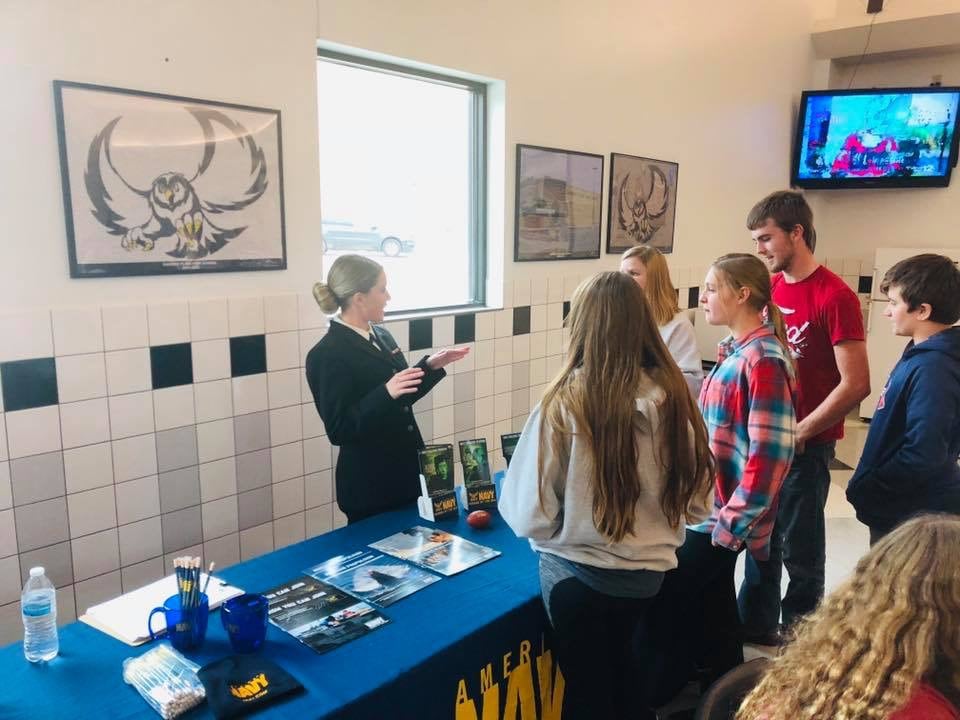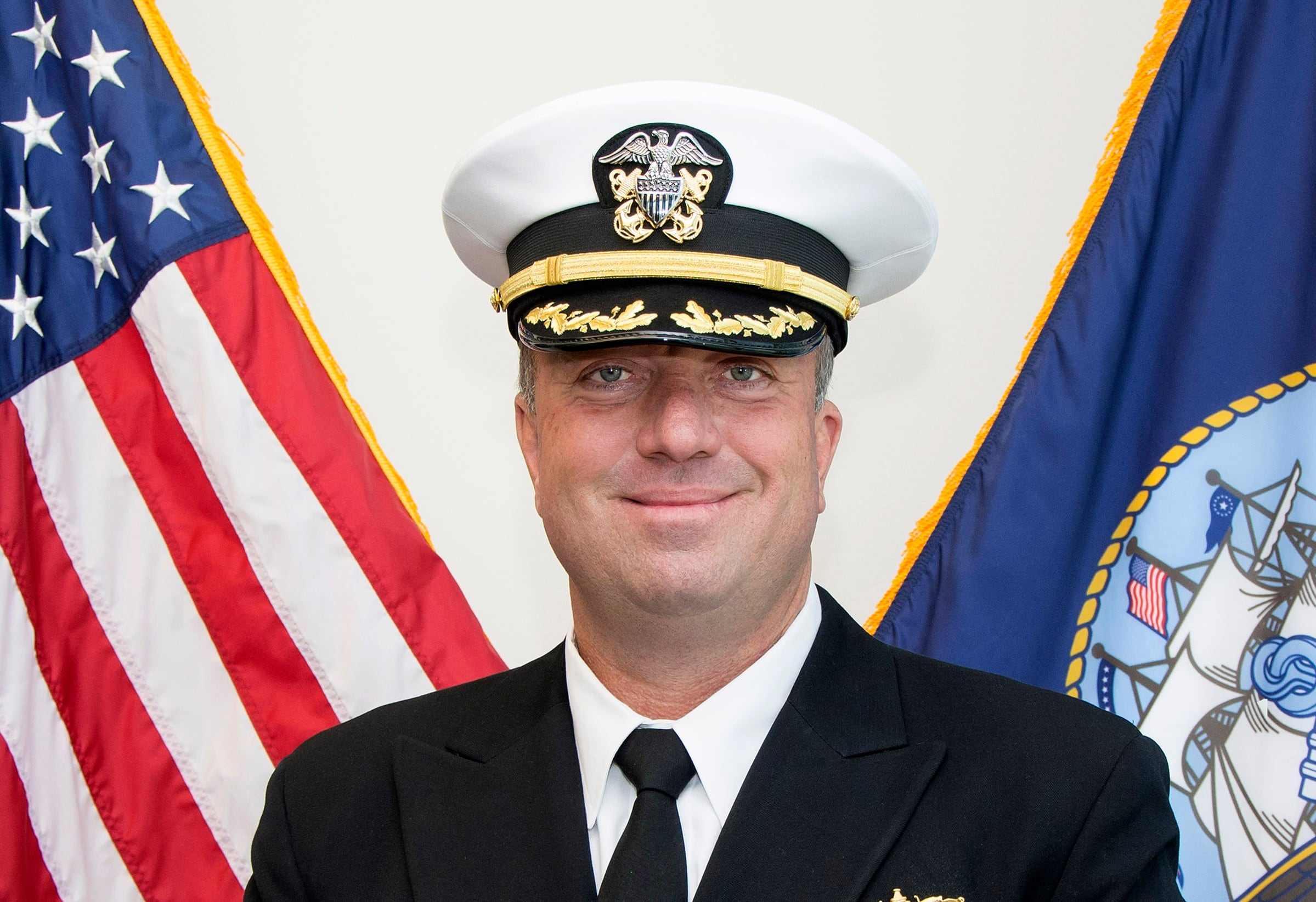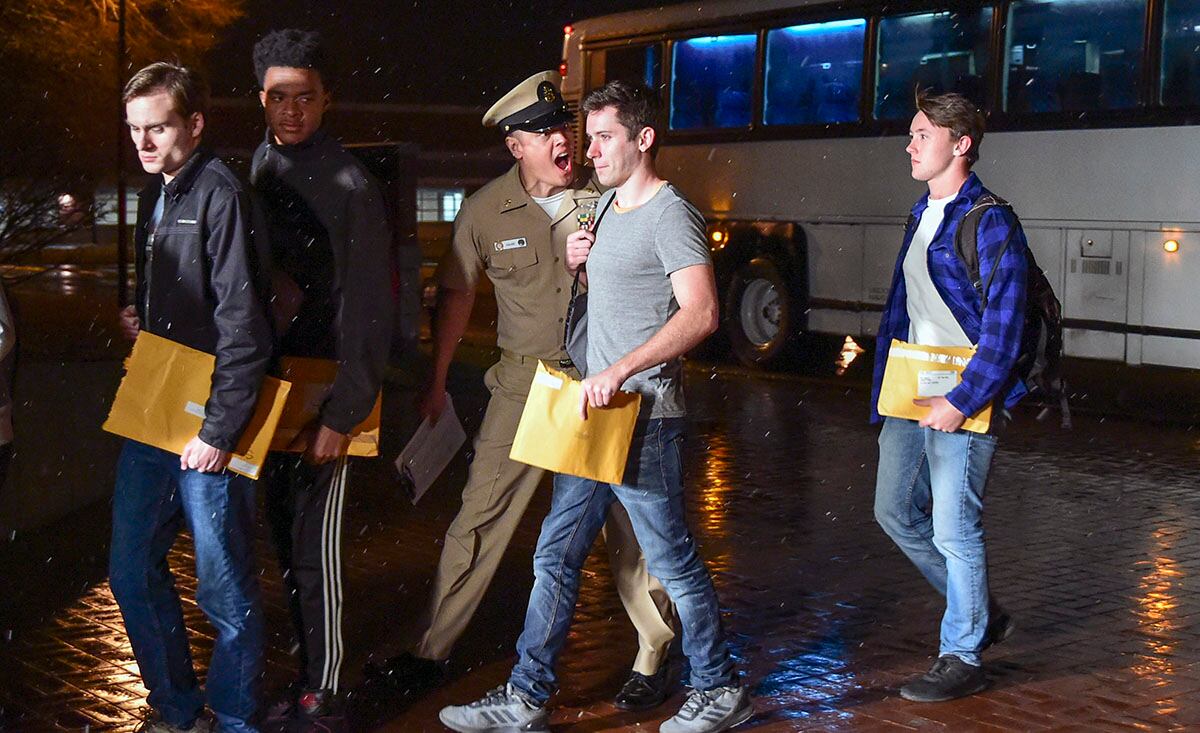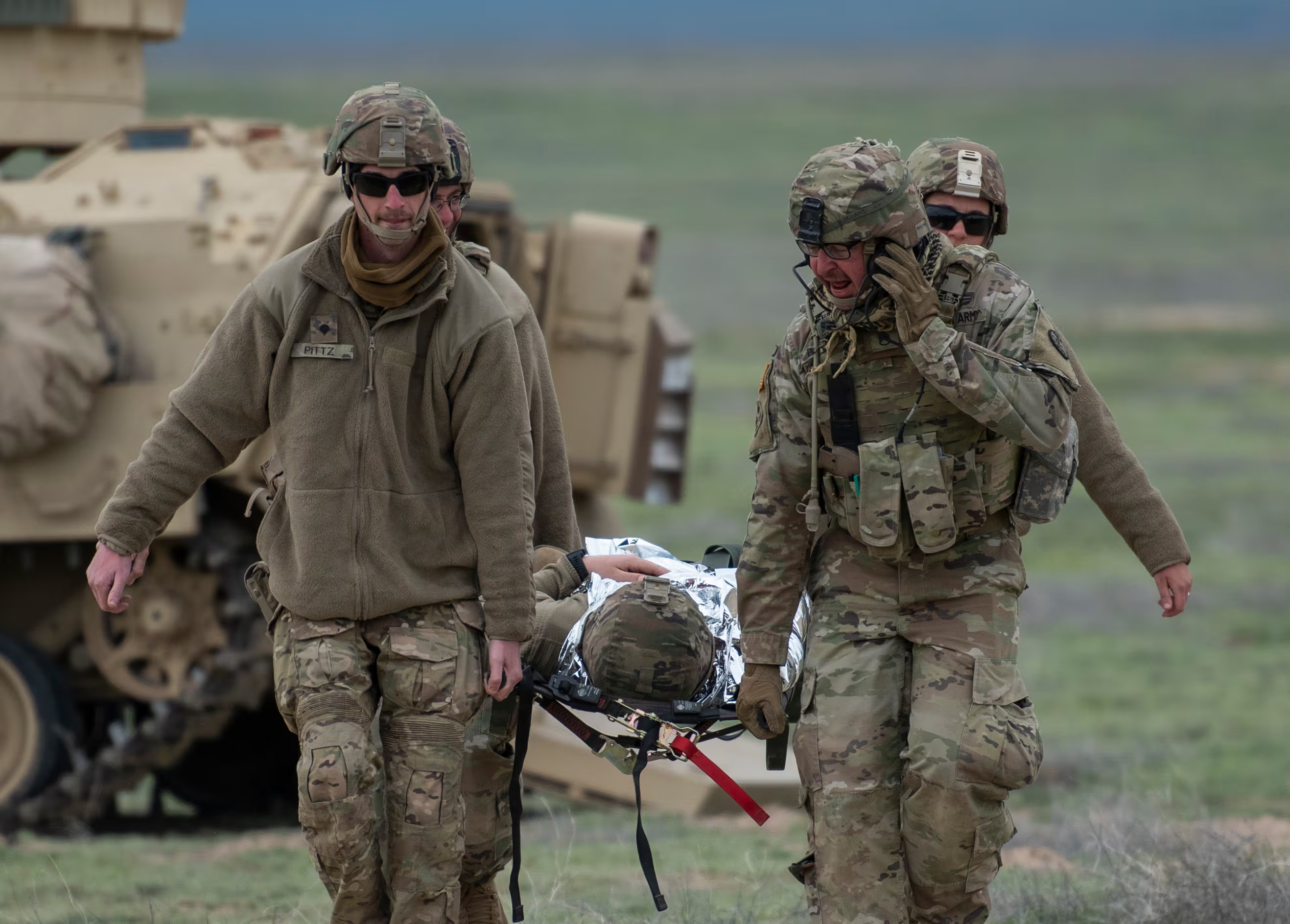When Yeoman 3rd Class Maegan Bayless accused superiors of drunkenness and opioid use in a Wichita recruiting office last year, she never expected it would trigger charges or efforts by her command to kick her off active duty.
But the 22-year-old reservist’s superiors tried to do just that, according to records obtained by Navy Times.
Now, the Navy Recruiting Command’s Inspector General is investigating how Navy Recruiting District St. Louis’s leadership treated the junior sailor, whether she faced reprisal from her CO and pressure from her command master chief to recant her allegations in order to protect the chiefs mess.
At the same time, Big Navy is walking back the disciplinary actions that Bayless’ command attempted to take against her.
“Petty Officer Bayless did the right thing by reporting misconduct by her shipmates,” Navy Recruiting Command spokeswoman Lt. Cmdr. Jessica McNulty said in an email.
The reversal came after Navy Times started asking questions about the case.
“She is not facing reprisal for reporting," McNulty said. "The Navy Recruiting Command has recommended no actions be taken against her and that she remain on recruiting duty as a Canvasser Recruiter in the Wichita, Kansas, recruiting station.”
Bayless’ woes began in November, when she filed a statement accusing her chief, a petty officer first class and a petty officer second class of drinking on the job and swapping opioid pills in the office.
In her statement and during the subsequent investigation, Bayless admitted to drinking a beer in uniform at lunch with those enlisted superiors about a week after reporting to Naval Recruiting Station Wichita-West last August.
“I was told by my Chief that having ‘liquid lunches’ or drinking beer at lunch was a regular occurrence and that it didn’t bother him,” she wrote in her complaint. “So I drank a beer in uniform with the other recruiters at lunch.”

A few weeks after filing her complaint, Bayless alleged in another statement that the district’s enlisted leader, Command Master Chief Latricia Robinson, pressured her to recant her allegations, and she refused.
Robinson referred all questions to Navy Recruiting Command.
After the investigation was completed in February, her bosses at Navy Recruiting District St. Louis opted to use that self admission to try and first take her to captain’s mast and then separate Bayless, according to records.
Cmdr. Nathan Rockholm, the St. Louis district CO who signed off on the moves, recently handed over the district’s reins in a scheduled change of command and did not respond to a request for comment.
Bayless told Navy Times she felt she faced reprisals for speaking up about the wrongdoing of her enlisted leaders.
“I am the most junior sailor at the command and I made allegations against a chief petty officer,” she wrote in a February complaint to the Inspector General. “I feel as though the command master chief and the chief recruiter wanted to protect the chief that I made allegations against. I also believe that they did not want these allegations to reflect negatively on the command itself.”
Despite the Navy proclaiming her job secure, Bayless said her command has since pressured her to submit an email asking to be removed from active duty.
Such documentation would show she volunteered for the separation she’s been fighting.
“They want to be able to say, ‘She signed it. She wants to leave,’” Bayless said.
Despite McNulty reiterating that no actions will be taken against Bayless, the yeoman said Tuesday that she was routing paperwork to leave active duty due to pressure from her command to do so.
“This isn’t getting any better,” she said of her situation at the recruiting station.
Bayless said she contacted Navy Times to tell her story because she feels that what happened was wrong and that she was just “trying to do the right thing.”
“If we are living by honor, courage, commitment, then I owe it to myself and the Navy to enforce the standard as a third class,” she said. “It’s all across the board, from junior enlisted to senior enlisted.”
“Specific items of concern”
Bayless said she knows it was wrong to have had a beer in uniform at lunch.
She said she didn’t feel right about it afterwards, consulted the regs and told her chief and first class she would not do it again.
After that, she became the “sober cab” the next time they all went out for lunch, Bayless wrote in her statement.
“I knew I was being used in a sense because I was young and they knew I wanted to be a part of that group,” Bayless told Navy Times. “It’s important that I get in good because that’s how recruiting is. It’s cutthroat.”
RELATED

Bayless’ non-judicial punishment notification from February cites the command investigation into her allegations as the reason for the action.
As is her legal right, Bayless refused Rockholm’s NJP, opting instead for trial by court-martial. But the command never took her to court-martial for insubordination and other charges stemming from her admitted on-duty drinking.
In March, Rockholm attempted to separate Bayless from active duty.
A copy of the separation request signed by Rockholm states that “Petty Officer Bayless was charged with drinking alcohol while in a duty status.”

The command investigation did not substantiate most of Bayless’ allegations against the enlisted leaders, but it also did not rule them out, according to a copy of the report obtained by Navy Times.
Investigating officer Lt. Michael Dungan’s probe raised questions about drug and alcohol abuse in the unit, a communal dysfunction the lead investigator thought might be fostered by the grinding pressures of recruiting an all-volunteer force.
Bayless said she was troubled by what she witnessed but at a loss for how to handle it.
“I didn’t know what to do with the information,” she told Navy Times. “I didn’t know who to call.”
Dungan wrote that he “believes the assigned personnel at NRS Wichita West were engaging in the consumption of alcoholic beverages during the ‘normal’ workday.”
“But as previously stated, without sufficient documentation or evidence…it is extremely difficult to hold them accountable based on current stated policy,” he wrote.
Dungan’s probe also raised questions about whether “the increased intake of alcoholic beverages” was a sign of a systemic “coping mechanism for the stress of recruiting duty.”
During the investigation, a petty officer first class contacted Dungan “to provide a larger degree of credibility to YN3 Bayless (sic) accusations," according to the investigation report.
That petty officer reported seeing the chief and first class drinking while out at lunch “on a regular basis,” and that he saw them “abuse prescription medications” when he was still with Navy Recruiting Station Wichita-West, according to the investigation.
But the sailor also noted that he could not definitively say whether the drugs were being used in their intended manner and declined to submit a written statement, according to the report.
The investigating officer also warned of “specific items of concern noted during the investigation that may be reflective of stress induced self-destructive behaviors” and “borderline misconduct.”
The report noted that a close relative “known to have chronic conditions” requiring “major surgery” might have supplied the petty officer first class with the pills, circumstances that “make it very plausible that YN3 Bayless’s (sic) statement is accurate and credible.”
In the end, Dungan only substantiated one drug-related allegation involving the first class, who admitted to taking a hydrocodone pill because he suffered from chronic pain.
That first class also stated his doctor would no longer prescribe him opioids, according to the investigation.
Dungan wrote there was a “high probability” that the first class “was suffering from a substance dependency with medication and alcohol to cope with his personal stress coupled with operational stress” and that he was seeking help at the nearby McConnell Air Force Base.
RELATED

The investigation failed to reach a conclusion about the allegations lodged by Bayless that CMC Robinson pressured her to recant during a meeting.
“There may have been an appearance of an effort (either deliberate or unintentional) to question the validity of YN3 Bayless’ initial allegations or to persuade her she did not witness the alleged abuse of prescription medications,” Dungan wrote.
Dungan noted that Bayless felt “being in a confined space” with Robinson and another master chief was intimidating.
He recommended that the yeoman’s lower echelon chain of command communicate with her going forward.
Geoff is the managing editor of Military Times, but he still loves writing stories. He covered Iraq and Afghanistan extensively and was a reporter at the Chicago Tribune. He welcomes any and all kinds of tips at geoffz@militarytimes.com.





